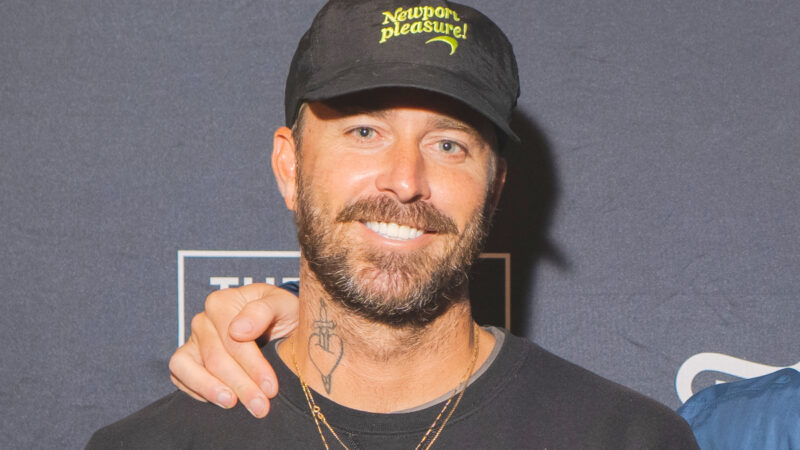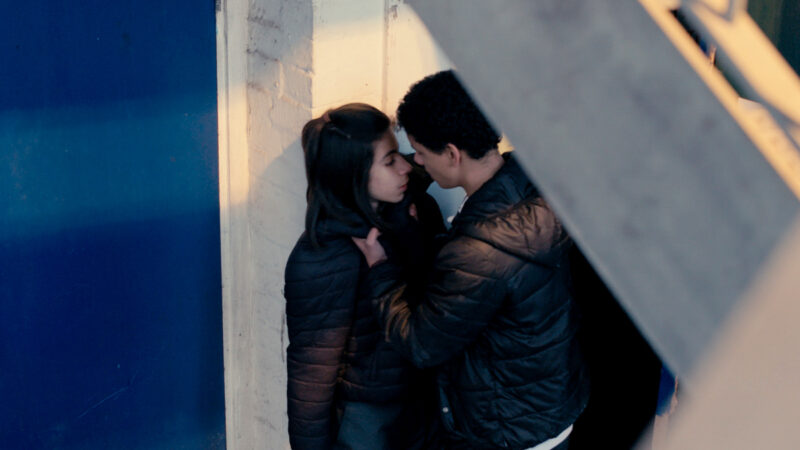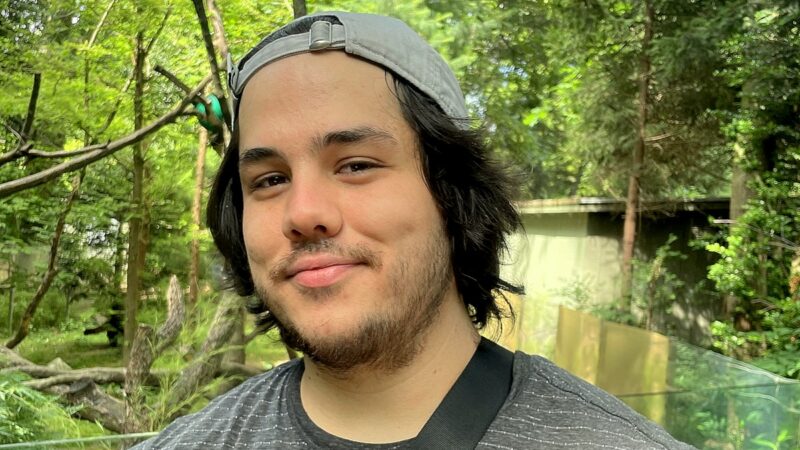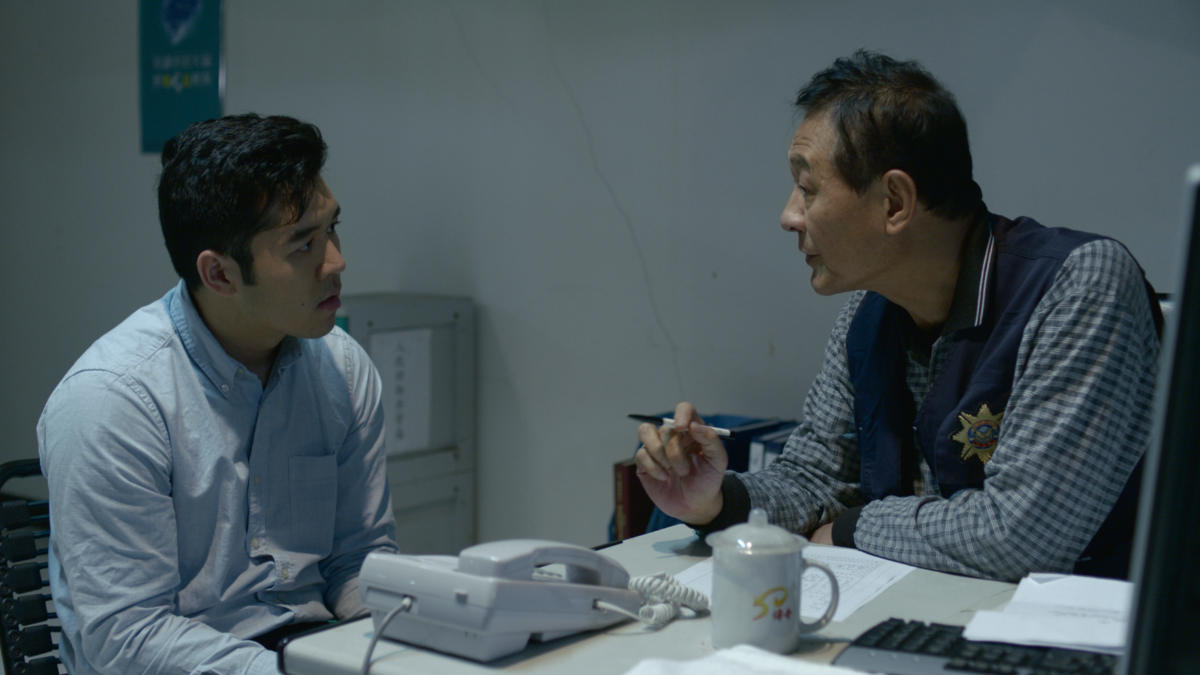
A Case Study
Narrative | Dramatic Features
Film Name: Ahma & Alan
Genre: Comedy/Drama
Date: October 2019
Director: James Y Shih
Executive Producer: Cara Chiu
Writer: James Y Shih
Cinematographer: Richard Sue
Editor: Name
Composer: Name
Production Company: Buff Grandma Production in association with Central Motion Picture Corporation
Budget (approx.): 30,000 USD
Financing: Personal finances, family, friends, and Kickstarter crowdfunding
Shooting Format: Digital
Screening Format: 1998 x 1080, MOV, DCP
World Premiere: Seattle Asian American Film Festival 2020
Awards: Asia Web Awards Best Lead Actress in a Short Film – Mei-Hou Wu
Website: http://www.jamesyshih.com/ahma-alan
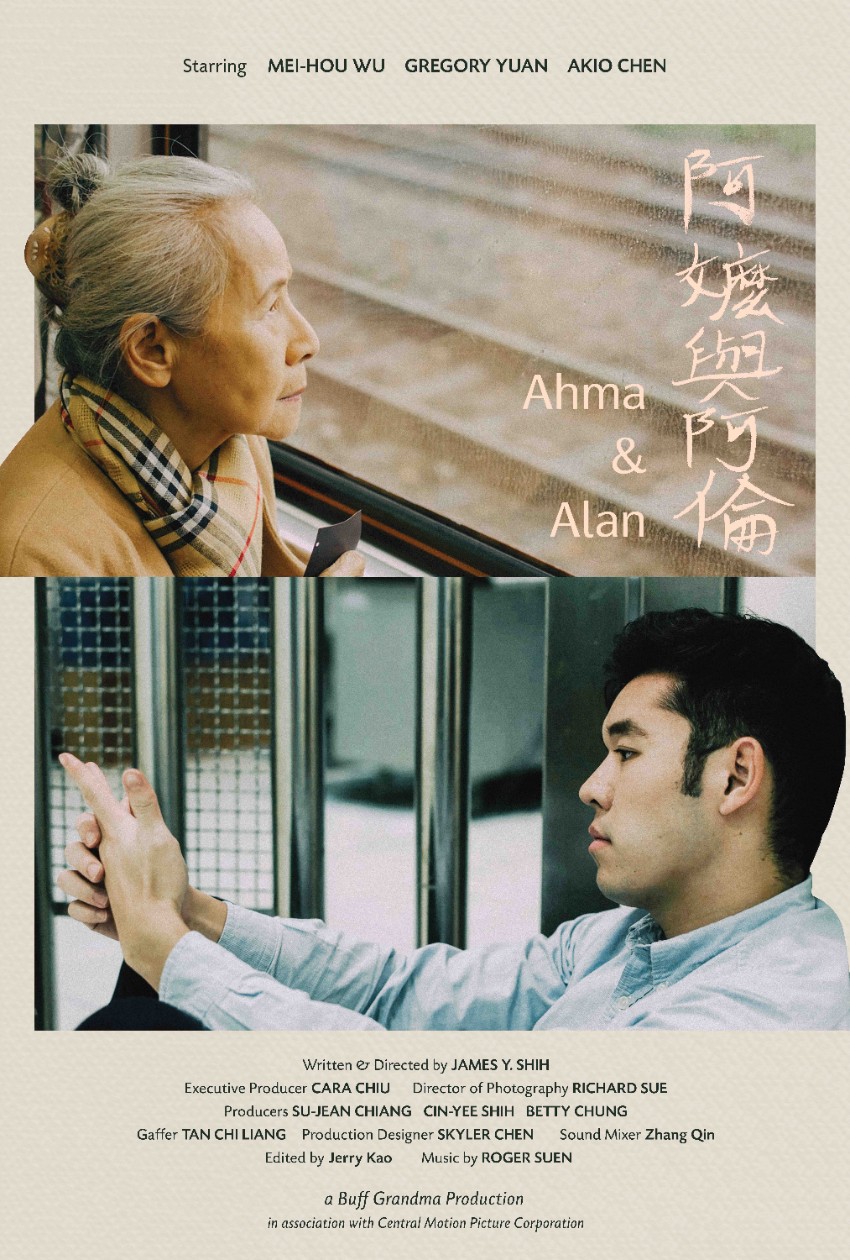
indieactivity: What is your film about?
James Y Shih (JYS): “Ahma & Alan” is a short comedic drama about a Taiwanese grandmother (Ahma) that finds out that her American-born grandson Alan has been thrown into jail for teaching English illegally in Taipei. She has to make her way from the rural city of Lukang to Taipei to pull her grandson out of jail before he gets deported.
The story was borne out of a personal experience I had when I was living in Taiwan in 2006. When I first arrived there to study Mandarin, I was charged with allegedly teaching English illegally at a school. Because I was American, I was at risk of being deported.
When I went to the police station to make the report, my paternal grandma and aunt came with me. My grandma told the officers, “I can take care of my grandson. I’ve got money! He doesn’t need to work illegally.” I found this incredibly funny and touching. This experience along with the feelings of loss that come with immigration inspired this film.
Tell us about the festival run, marketing, and sales?
James Y Shih (JYS): Official festival selections so far (festival run starting Feb 2020)
- Seattle Asian American Film Festival 2020
- Helsinki Taiwanese American Film Festival 2020
- DC Asian Pacific American Film Festival 2020
- Boston Asian American Film Festival 2020
- San Diego Asian Film Festival 2020
- Silicon Valley Asian Pacific Film Festival 2020
- HollyShorts 2020
- Dream Flare Festival 2020
- Chinese American Film Festival 2020
- Asia Web Awards 2020
These have all been digital and/or geo-locked online festivals with the exception of the Seattle Asian American Film Festival in February this year. Here are mentions of my film online:
SingTao USA (Mandarin Chinese): Grandma Saves Grandson (Based on True Story) – Film Fundraiser TaiwaneseAmerican[dot]org: Ties that (Un)Bind: Q&A with Filmmaker James Y. Shih
The Official Trailer for “Ahma & Alan” written and directed by James Y. Shih
Give the full Official Synopsis for your film?
JYS: Grandma Lin is a recently widowed grandmother that spends her lonely days in rural Taiwan. She passes her time as a shut-in, painting landscapes and cleaning the family altar. She looks forward to the occasional visit or calls from her American-born grandson Alan who has just returned from California and teaches English in Taipei.
One day, she learns that Alan has been thrown into jail for teaching English illegally. Grandma has to find her courage and make her way to Taipei to pull her grandson out of jail before he gets deported by a vindictive police officer. Adapted from the director’s own personal experience, “Ahma & Alan” is a story about identity and the ties that bind us across generations and nationalities.
Development & Financing?
JYS: In Taiwan, I was eventually able to get the charges dropped thanks to an uncle that wrote a letter for me. I continued my studies at National Taiwan Normal University Mandarin Training Center and for one of my class assignments I wrote a short story that formed the first part of the short film: Officer Bei questioning Alan at the kindergarten. The rest of the film’s structure, of grandma coming to the rescue, was shaped years later at a City College of San Francisco screenwriting course led by Professor Lise Swenson.
In 2017, after graduating from Cal State University Northridge with a Screenwriting MFA, I decided to revisit and revise the story to get it ready for production.
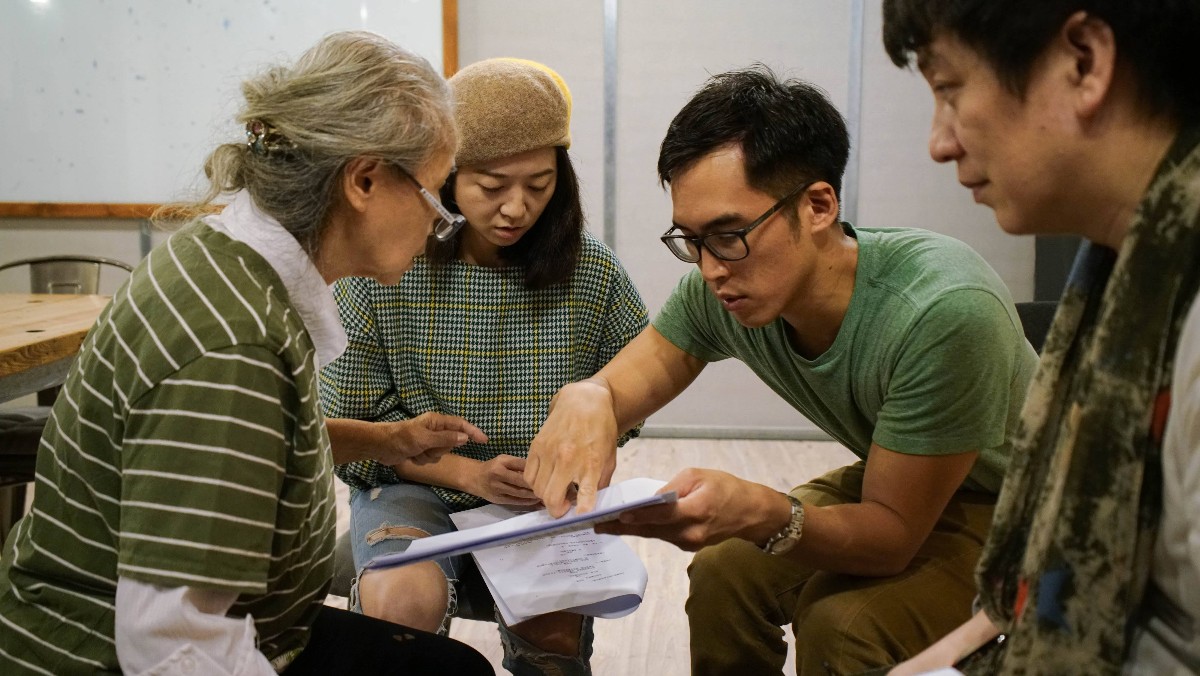
The initial financing came from a small inheritance from my maternal grandmother as well as support from my mother, sister, and aunt who’re listed as producers. As I write this, I realized that a team of strong, independent Taiwanese women made this film possible. For post-production and to pay back some of the production costs, I ran a successful Kickstarter campaign after film production wrapped.
Production?
JYS: The production process started in 2018. We already had cast the main grandma character, Mei-Hou Wu, from a visit to Taiwan I had done earlier that year. For the other lead, Alan, I did a social media blast in October 2018 looking for actors, did in-person casting in Los Angeles, and also watched video submissions. Through that process, I was lucky to meet Gregory Yuan who signed on to the role.
A month before production, I landed in Taipei to find a local producer and to do pre-production for the film. After seeing my social media posts, a friend of mine connected me with Cara Chiu, a producer at Taiwan’s pre-eminent film production house: Central Motion Picture Corporation (CMPC). I had a meeting with her and Tan Chi Liang (an executive and gaffer at CMPC). I shared my script and vision for the film and the three of us hit it off. They became huge supporters of the project and helped me build the remaining team and gear list for the film. It is big thanks to Cara and Mr. Tan that the film was able to achieve the high production value it has.
However, we still needed to find a Production Designer that was able to start work that week and for a low budget wage. This was essential especially for the key grandma scenes in her home. Just before we were about to delay production, artist Skyler Chen reached out to me. He also brought on Roderick C. Tseng as the Art Director.
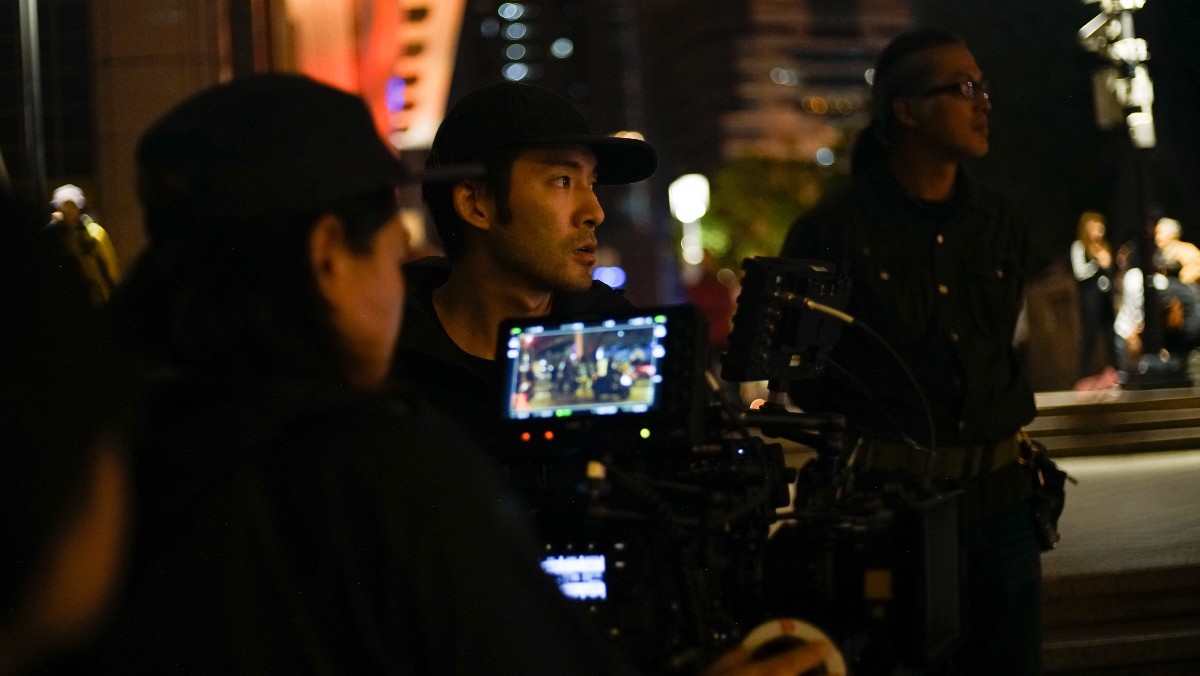
Filming took five days and was a whirlwind:
Day 1 Taipei Kindergarten: Found this location through one of my aunts. It was ideal because it was an actual kindergarten and there were children that were willing to participate as actors for our film.
Day 2 Lukang – Grandma’s home: Production Designer and Art Director Skyler and Roderick stayed up all night to get the place ready. The lighting team was also incredible in setting up lights throughout the home. When I got there and saw all the work they did, it got me emotional that people were working so hard to make this film a reality.
Day 3 Taipei – “American” school & Taipei Main Station: We filmed outside a restaurant that was still operating during regular business hours as well as an important “accident” scene at Taipei Main Station.
Day 4 New Taipei City Train & Taipei Taxi: This was really fun. We got to take the train and get a shot in one take before rushing onto the train to steal shots onboard. Then we drove around in a taxi in Taipei getting shots.
Day 5 New Taipei City – Police Department: We were allowed full access to the lower floor where a jail cell was as well as some time at the front desk upstairs to shoot a short scene while the police department continued to operate.
For post-production, we worked remotely: me back in the US and the post-production house in Taiwan. I was able to direct actress Mei-Hou Wu to dub a few lines via video chat which was a fun learning experience.
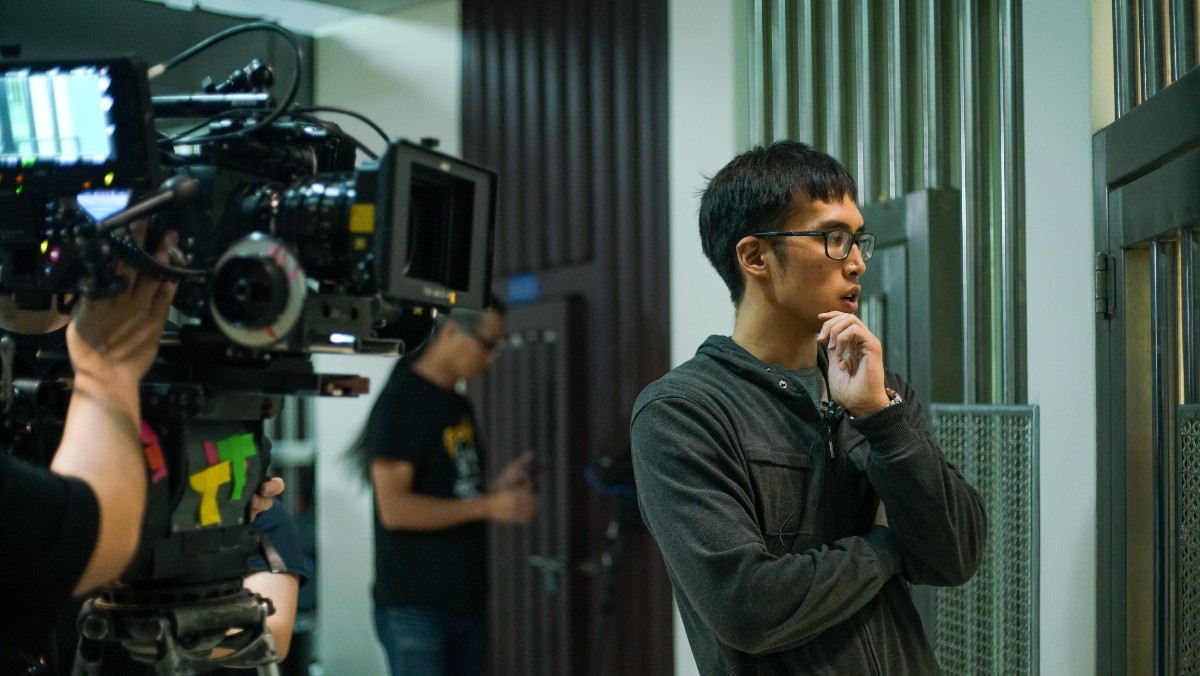
To finalize the edit, the sound mix, and the color correction: director of photography Richard Sue and I flew back to Taiwan. As we corrected the color, it was exciting to see the film projected onto the big screen.
It was bittersweet leaving Taiwan that time because I knew that after locking the color and the sound, that I had to walk away from tinkering with this film, a film that had consumed my life for so long.
Festival Preparation & Strategy?
JYS: My film is filmed in Taiwan and also has a Taiwanese/Chinese-American lead. After discussions with my team and filmmaker friends, I decided to submit to Asian and Asian American film festivals (e.g. Seattle Asian American, San Diego Asian, etc…) as my main target. From there I would focus on international and short film-focused festivals (e.g. HollyShorts). After that would be to reach out to some of the major film festivals to get a feel to see how my film might be received (Sundance, SXSW, etc…).
For press, I reached out to a number of outlets including the World Journal, the largest Chinese language newspaper in the US, to let them know about my film and its festival run. This helped push the number of views my film was having during the virtual festivals.
The Release?
JYS: As of now, I’m still hoping to show at a few more festivals and would also like to present the film at schools, Asian/Asian-American organizations, as well as independent film groups. From there, I would like to release the film online so that more people can see it.
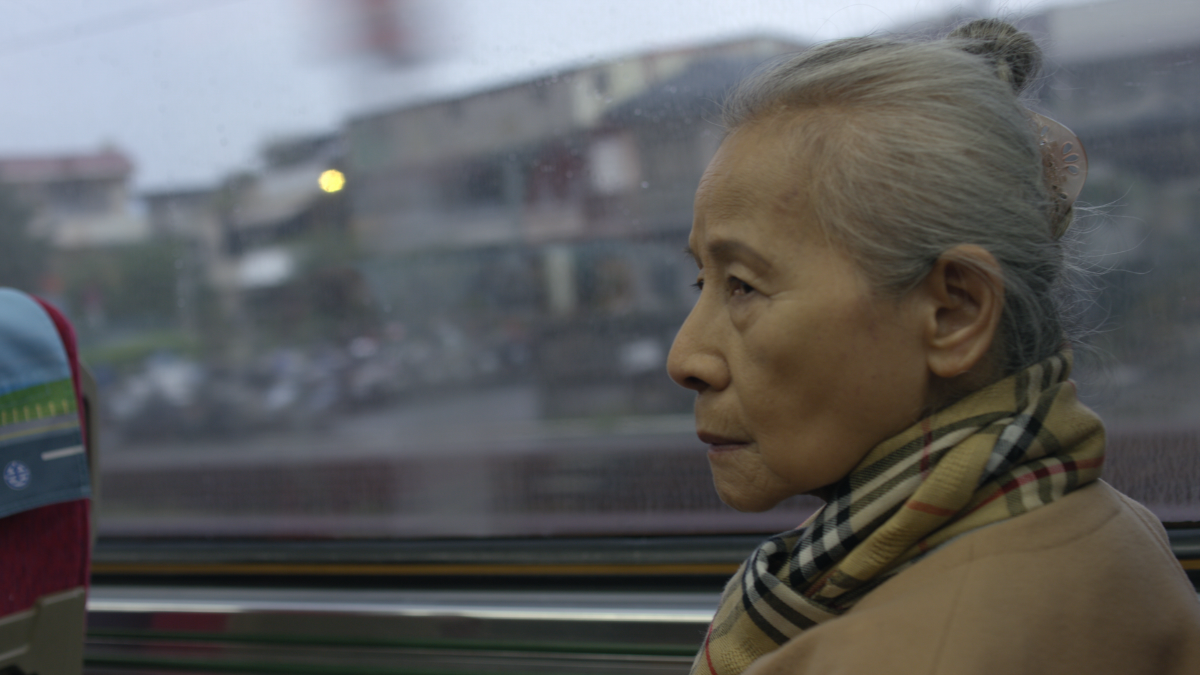
Advice from the Filmmaker?
JYS: One big lesson I learned from this film was gratitude. It was so amazing to see and feel the love and support for this film. Sure, there were a few naysayers and doubters, but as I became more determined to make this film and posted about it online, I was able to connect with people that believed in me; even when that belief faltered in me. Whenever I felt tired or a bit disgruntled, I would remind myself that I’m working towards a dream that all these people were willing to work or donate their money to help make come true. Therefore, I carried with me a strong sense of appreciation. Whenever an issue arose, I was grateful to be able to meet such challenges; it was better than trying to problem solve at a job I was not passionate about.
Keeping focused on making a good film and not taking things too personally was also an incredibly important mindset to have. It kept me humble and I believed that others could sense it too and thus wanted to contribute.
Tell us what you think of the Case Study for Ahma & Alan What do you think of it? Let’s have your comments below and/or on Facebook or Instagram! Or join me on Twitter.
Follow James Y Shih on Social Media
Website
IMDb
LinkedIn
Twitter
Instagram
Vimeo
MORE STORIES FOR YOU

